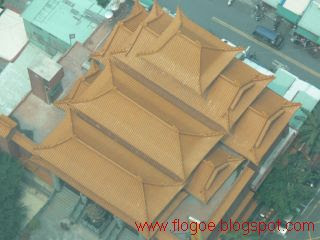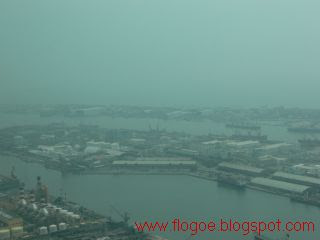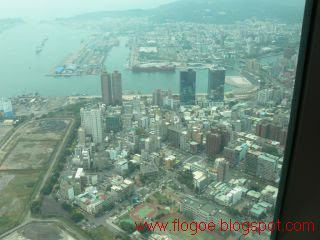The video is really funny!
BUT BE AWARE OF THE END, it might disturb some of you!!!!!
 本文章為荷蘭來頓中文系學生報紙出版:
本文章為荷蘭來頓中文系學生報紙出版:這次KmK的版本是有關於暴力。我想了半天,想不到我的文章要怎麼寫。我在台灣生活的經驗都是非常安穩的,很有安全感。除了一次在迪斯可舞廳前,早上五點半,遇到了從沒有過的暴力相向經驗。那天我們剛出迪斯可舞廳,就有一些黑社會成員在打架,用棒球棒互相毆打對方,但我們因已經坐上計程車而沒有發生任何問題。
我之所以認為台灣是一個沒有像荷蘭那麼危險或暴力的原因?我不確定,就覺得這兩個國家社會暴力表達的方法不一樣。
在荷蘭跟別的西方國家,很多事情是較明顯的。台灣跟其他亞洲的社會國家較不會表達自己的感覺。但是有另外一個因素,對我來說亞洲比其他西方國家起來好像嚴格許多:「社會壓力」。
父母對於子女期待很高,因此造成學生壓力非常大。學生整天上課,回家以前還要去補習班學語言或數學。上班族平常要加班,甚至不能有一絲怨言。每個人都像機械化的機器人,按表做事,不出差錯,要不然家人,公司老闆,或老師等都會覺得很失望。
我認識的台灣的大學生都是非常努力的學生,天天都要寫功課,平常要打報告,只餵了應付期中跟期末考試。即使大部分的學生希望有個輕鬆一點的生活不行。
社會壓力也包括了經濟壓力。國立清華大學經濟學系的Hwei-Lin Chuang 跟 Wei-Chiao Huang研究過自殺與事業的關係 (Suicide and Unemployment: Is There a Connection? An Empirical Analysis of Suicide Rates in Taiwan).
他們論文的重點著重在研究發現在事業率較高的地區自殺率也會相對提高。他們指出,台灣最近幾年經歷了很多經濟、環境上跟社會上的變化。特別的例子是在一九九九年九月二十一日的大地震(造成兩千多個人過世,一萬多棟樓遭到破壞)。接著因為這樣的災難,許多人民與人民財產都受到了極大的損害。台灣的經濟也不如以往發展的迅速,這樣的情況造成了人民生活水準的下降,而相對的,失業率也跟著直線上升。
根據PEOPLE’S DAILY ONLINE 的報告,大部分自殺的人民通常是因為沒有工作或年齡六十歲以上。
我已經提出了我在台灣的經驗都是非常好的。暴力真的是很難找到的現象。但是我們也不能忘記大部分的暴力有可能不如我們平常所看到的表面那樣簡單。每一個社會跟每一個人民有自己的特性與差異性, 有的是優點,有的是缺點。總而言之,在我認為,台灣的社會自殺問題應該比荷蘭的比率高。
照片:“你可以不必自殺”,在台北劍潭拍的廣告
























 Ikea in down town Gaoxiong. Part of the modern city centre, where also the 遠東 Far Eastern (?) shopping wall (one of the largest in the world) can be found.
Ikea in down town Gaoxiong. Part of the modern city centre, where also the 遠東 Far Eastern (?) shopping wall (one of the largest in the world) can be found. The harbour in Gaoxiong, besides old fashioned ferries, there can be nice yachts and huge cargo ships found.
The harbour in Gaoxiong, besides old fashioned ferries, there can be nice yachts and huge cargo ships found. A nice breeze in the afternoon, relaxing, cooling and very beautiful in combination with palm trees at the beach.
A nice breeze in the afternoon, relaxing, cooling and very beautiful in combination with palm trees at the beach. Not swimming, but playing the water is very famous among students in Taiwan.
Not swimming, but playing the water is very famous among students in Taiwan. Always ready for a nice picture. Taiwanese love taking pictures as much as I do...
Always ready for a nice picture. Taiwanese love taking pictures as much as I do... Another example of the great flexibility of Taiwanese how to use a scooter to get around.
Another example of the great flexibility of Taiwanese how to use a scooter to get around. Taiwanese people love cars, and German cars. Some people can afford German cars, some people can only afford German licence plates and but them behind their Taiwanese licence plate.
Taiwanese people love cars, and German cars. Some people can afford German cars, some people can only afford German licence plates and but them behind their Taiwanese licence plate. Playing Mahjong in the harbour of Gaoxiong.
Playing Mahjong in the harbour of Gaoxiong. "Don`t stare at the foreigner", foregneiers should not ask that of the people in Taiwan. We love to look around and they do so as well. Yet sometimes the reactions of the local children are quite exaggerated: A girl called us Ghost (鬼), while walking up the stairs to a temple. Still quite cute compared to a boy who called us lecher (色狼)...well we keep smiling and look around.
"Don`t stare at the foreigner", foregneiers should not ask that of the people in Taiwan. We love to look around and they do so as well. Yet sometimes the reactions of the local children are quite exaggerated: A girl called us Ghost (鬼), while walking up the stairs to a temple. Still quite cute compared to a boy who called us lecher (色狼)...well we keep smiling and look around. Who is doing the wrong thing here? Taking a picture of someone peeing in the harbour, or the peeing itself???
Who is doing the wrong thing here? Taking a picture of someone peeing in the harbour, or the peeing itself??? The ferry from the harbour to Qijin island. 10 minutes, 10 NT and a great experience.
The ferry from the harbour to Qijin island. 10 minutes, 10 NT and a great experience. The largest Confucius temple of Taiwan is in? Right, Gaoxiong. A very beautiful recently (in 1976) re-built centre of concentration and calmness.
The largest Confucius temple of Taiwan is in? Right, Gaoxiong. A very beautiful recently (in 1976) re-built centre of concentration and calmness. Another example of love to Germany. We'll sometimes people here love German history in a way that a properly educated and clearly thinking German would never do...
Another example of love to Germany. We'll sometimes people here love German history in a way that a properly educated and clearly thinking German would never do... High-tech with bamboo! A characteristic of Taiwan?
High-tech with bamboo! A characteristic of Taiwan? The former British consulate, close to the Sun-Yatsen University.
The former British consulate, close to the Sun-Yatsen University. Picture: Cute sticker-face!
Picture: Cute sticker-face!
 If you don't like chewing betle nuts you still have to love the result of locals spitting on the floor after having chewed for the whole day! I admit, I am a fan. And you can find these spots of worship through out the island. They are even more numerous that all kinds of temples...
If you don't like chewing betle nuts you still have to love the result of locals spitting on the floor after having chewed for the whole day! I admit, I am a fan. And you can find these spots of worship through out the island. They are even more numerous that all kinds of temples... The lover river at night!
The lover river at night! The Lotus lake during the day.
The Lotus lake during the day. A great special edition for increased driving comfort. A model from Piaggio with two separated seats.
A great special edition for increased driving comfort. A model from Piaggio with two separated seats.
Nachdem Florian und Fabian in der letzten Woche bereits bis ans Ende der Tarokoschlucht auf ein Bergchateau auf 2300 Meter Höhe vorgedrungen waren, drohte am Folgetag noch die 220 km lange Rückfahrt nach Taipei. Vom GPS im Stich gelassen schlugen sich die beiden, nur mit einer extra Tankration im Helmfach, bis zu den Vorbezirken von Taipei durch. Dabei gestaltete sich die Fahrt fast genauso schön wie die Durchquerung der berühmten Tarokoschlucht, denn auch Taiwans touristisch vielleicht etwas weniger bekannten Regionen haben einiges zu bieten. Fabian und Florian sausten erst von den Bergen hinab an Pfirsichplantagen ins Tal und dann wieder hinauf auf die Bergspitzen, vorbei an taiwanischen Urwäldern und an beeindruckenden Bauwerken, wie dem Ronghua-Staudamm. Nach 10 Stunden Fahrzeit war Taipei erreicht. Ein Erlebnisbericht nun von Fabian und Florian. | |||
 |  | ||
| Florian auf einer befahrbaren Hängebrücke | Fabian und Florian auf den Bergen | ||
 | |||
| Der Beweis: der Höhenmesser zeigt 2350 Meter an | |||
 |  | ||
| Fabian und Florian über den Wolken | Auf knapp 2000 Metern über den im Tal liegenden Wolken | ||
 |  | ||
| Florian und Fabian halten über Handy Kontakt mit dem RTI Hauptquartier | Am Straßenrand bei einer Verschnaufpause | ||
 |  | ||
| Der Ronghua Staudamm | Nach der Fahrt werden die Roller generalüberholt | ||